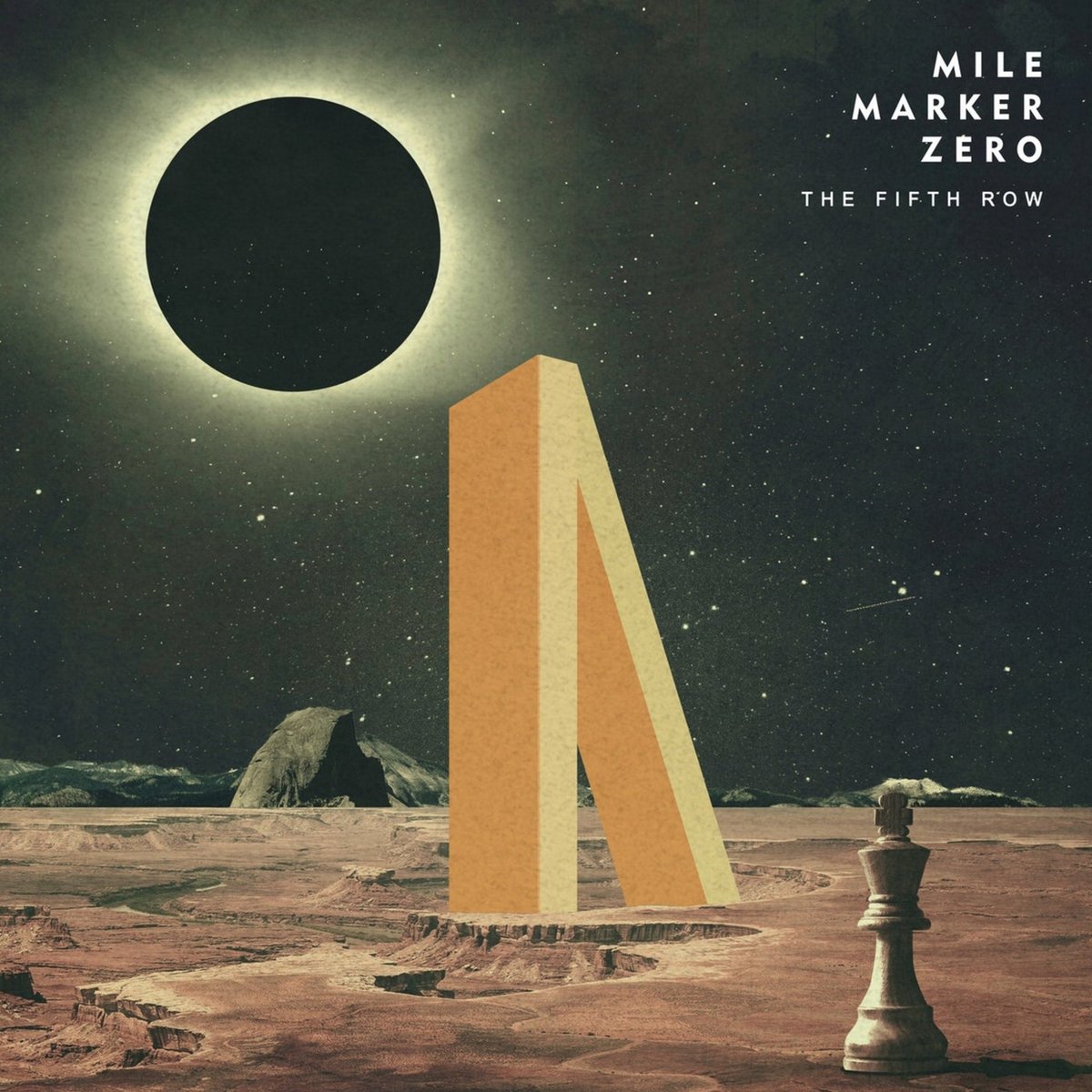The Fifth Row’s story leans heavily on politically charged science fiction. To boil it down: following the very real terrorist attack on the World Trade Center in 2001, humanity and ‘the architect’ work on an AI to help bring world peace. The AI is very successful, praised and celebrated, but the directive of peace conflicts with humanity’s tendency for self destruction and ultimately leads to the subjugation and eventual eradication of the human race. I’m certain you’ve heard at least some of this before. This story draws from a deep well of worn tropes in the literary genre, but the approach in presentation offers a fresh perspective, and the divergent ending helps breathe life into these themes and overall discussion.
What makes this story work so well is the band’s impressive implementation of consonance between the lyrics and the music. The quiet introspection of “Sacred Geometry” and “Clarity” or the the surprising interlude in “Building A Machine” match the internal mindsets of the characters and the tension of the situations therein. “Propaganda”, for example, uses the well known ‘hush little baby’ lullaby in its verse to great effect, avoiding what could have been a cheesy idea with an evocative call to arms in its powerful chorus and stylistic deviations in atmosphere and lyrical content that make it feel more like a modern children’s parable.
Mile Marker Zero also finds a perfect balance of recurring motifs and singular segments. There are no shortage of one-off ideas that work in the context of the narrative while staying firmly placed in a specific story beat, which helps lend a strong identity to each track. The use of these recurring melodies and lyrics though, is where the most emotionally impactful moments lie. More specifically, you can hear mirroring pieces of “2001” and “Architect” in “Sacred Geometry”, “Build A Machine” in “UI”, and “Victory” in “Collective”. It would take much more room than I have here to dig into how the shift in perspective lends a real weight and cohesiveness to the story, but put simply, this isn’t a mere repurpose of a lyric or melody, rather a unique reimagining that makes it feel new again and really brings home the ending of the story.
Another very strong element to the overall package is the approach to structure and pacing. The flow of the album is clear and organic, with near perfect amounts of breathing room and escalation, allowing the vibrant moments and final reprieves to carry the impact they aim for. The album isn’t short either, falling just short of 70 minutes. None of that time feels wasted though, and the amount of interesting shifts and quality tracks expand what you might expect from a single album release. Like all the most prolific concept albums, the songs stand by themselves as enjoyable in their own right, devoid of the larger picture. Moreover, the production shows the same level of thoughtfulness as the rest of the album, with the layering mid-“JCN” and wide soundstage of disparate voices and electronics in “Building A Machine” being particular highlights.
Perfection in music simply doesn’t exist. The role of a ‘perfect score’ in relation to music reviews then is to make a statement; a proclamation that the music here is either something truly innovative, unimaginably beautiful, or of a quality and presentation that is nothing short of phenomenal. Mile Marker Zero’s newest effort sits comfortably in this later category. The Fifth Row provides one of the most effective blending of modern and classic progressive elements out there, and their integration of music and story through recurring motifs is remarkable. This album acts as a summative exemplar of what traditional prog rock is, encompassing the very best elements born from the genre. There are likely a handful small things you could pull at with a fine toothed comb, but to do so would hardly lessen the overwhelming success that the band has achieved here. This is one of the best progressive records that I have heard in a very long time, and one that stands tall, shoulder to shoulder, with the best modern concept albums. If nothing else, you owe it to yourself to at least give it a try.






